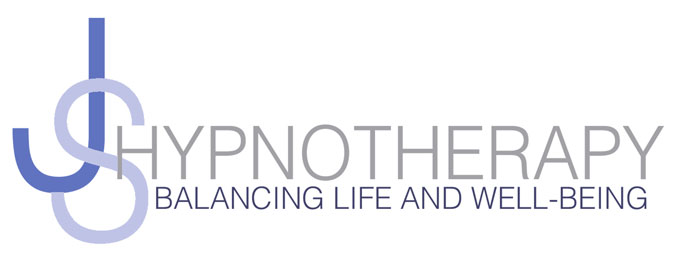Hypnotherapy can reduce Sleep Problems – including Insomnia and Snoring
A good night’s sleep is important to our health and well-being. This has been known for centuries. William Shakespeare, for example, highlighted its importance and referred to sleep as “Nature’s soft nurse”. He urged us to “enjoy the honey-heavy dew of slumber. However, many of us often suffer from various sleep problems. Long-term sleep problems can damage your health: it can increase your risk of high blood pressure, stroke and heart disease. This is likely to be because our blood vessels repair when we sleep – if we don’t give them the chance to heal, problems crop up.
Recent studies have also pointed to a link between lack of sleep and obesity. Interestingly, those who fail to get enough sleep are more likely to be obese. The reasons behind this are not clear. It is thought that those who suffer sleep problems may not have the energy to exercise, or overeat to compensate for their lack of energy. Getting enough sleep is also important for our cognitive thinking – it also helps us to learn better; it helps us to be more creative and become better at problem solving. If we start to have sleeping problems, these abilities can be hindered. Over time this can affect daily life, impacting on your relationships and work life. National Hypnotherapy Society: Read full article on http://www.hypnotherapy-directory.org.uk/articles/insomnia.html
Research shows that sleep deprivation leads to poor memory, poor creativity, increased impulsiveness, poor judgement. Tired brains crave things to wake them up; drugs, alcohol, and carbohydrates! Not only do these lead to increased stress but there is a direct correlation between weight gain and lost or disrupted sleep. (National Hypnotherapy Society: Oct 2013)
Causes of insomnia & sleep problems
May be stress/anxiety; physical health problems; Lifestyle; Using various techniques, a hypnotherapist can tap into your subconscious to uncover the root cause of your inability to sleep. Once the cause is established, treatment can commence.
One important part of hypnotherapy for insomnia is teaching you how to relax. This may involve dealing with underlying issues that are causing stress and anxiety. It may also involve teaching you how to physically relax. These techniques can help solve various sleep problems.
For an example of how a chronic insomniac turned to hypnosis after acupuncture, yoga, herbal teas and a regimented bedtime ritual failed to get her to sleep, read the article “Hypnosis helped me to sleep” http://www.nhs.uk/Livewell/insomnia/Pages/hypnosis.aspx
An article in “The Huffington Post”, 07/02/2014 entitled “5 Science-Backed Health Benefits Of Hypnosis” the topics include Sleep, as well as Pain, IBS, Hot Flushes, and Anxiety. see: http://www.huffingtonpost.com/2014/07/02/hypnosis-health-benefits_n_5523210.html
And “Finally! Hypnotherapy is helping to beat my chronic insomnia (after YEARS of sleepless nights) Daily Mail 9 April 2018 https://www.dailymail.co.uk/health/article-5596195/Hypnotherapy-helping-beat-chronic-insomnia.html
Snoring and sleep problems
Snoring is another problem with not getting adequate sleep – whether it be the snorer themselves, or their partner.
The Journal of the Royal Society of Medicine stated: Treatment Options for Snoring “ It is not widely known that hypnotherapy can be a useful tool for eliminating snoring. Until quite recently the focus of attention in hypnotherapy has been to reduce alcohol intake, and also to ensure weight reduction. However, in a recent study,2 direct suggestion under hypnosis was used so that the patient would immediately turn on his side when snoring at night. This led to a reduction in the intensity and duration of the snoring response…” . The Royal Society of Medicine went on to state “ Hypnotherapy might be tried as a first-line approach before more invasive procedures are considered.” To read the full article see: http://www.ncbi.nlm.nih.gov/pmc/articles/PMC539616/
One client that I treated for snoring, reported after just a few sessions that they automatically turned on their side whenever they went to lying on the back – whether sleeping alone or with their partner: the powerful subconscious mind learnt to turn the client over after being given powerful suggestions, as lying on one’s side often helps to stop snoring.
Diploma in Insomnia
To further support my clients, alongside my professional qualifications in Hypnotherapy and Counselling, I have undertaken an Insomnia Practioner Diploma to enhance treatment for Insomnia. An holistic approach is taken, applying aspects of Mindfulness where appropriate, and taking into consideration the clients Diet and Nutrition intake, encouraging relaxation and breathing techniques. Together with an understanding of symptoms and causes of Insomnia, I can enhance a clients treatment of insomnia with these additional techniques.
Breathing Techniques:
Breathing techniques can also be used to help “Sleep soundly and manage stress and pain” (Source: Stuart Sandeman “Breath In Breath Out” 2022). I can suggest examples of breathing techniques for you to use in order to aid restful sleep.


